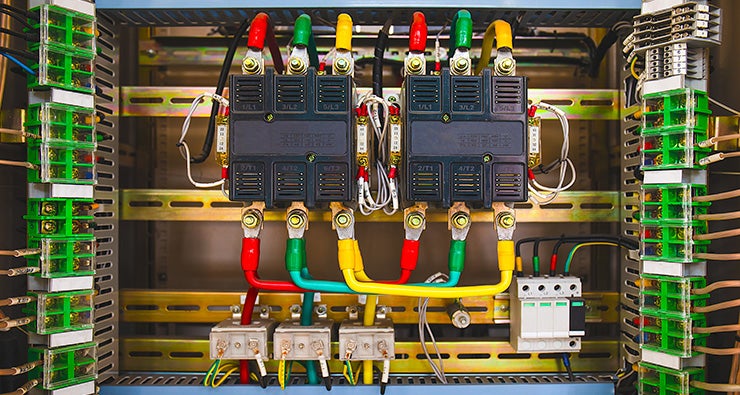Electric Circuits: Dos and Don’ts
Today, the role played by electricity in our daily lives is undeniable. From lighting up our homes and offices to running heavy-duty machinery in our industries, electricity is at the heart of everything. However, electric power can be as dangerous as its useful, if mishandled. So, it’s crucial to take proper care of electric circuits around your house and workplace to prevent sudden fire breakouts, electrical surges, electrical shocks, and wiring issues.
Taking necessary care of electric circuits will also help you in streamlining the use of electricity, eventually saving you from costly repairs and hefty electricity bills. Here are some dos and don’ts for handling electrical circuits from our experts.
Electric circuits: Dos -
- Active electric circuits carry high electric charge. Direct contact with unsupervised, exposed circuits can cause injury or may even turn fatal. So, make sure you have no exposed wiring around your house or workplace.
- Make sure that the uncovered power outlets in your home are out of the reach for children and pets. In case you are refurbishing your electrical setup, pick shuttered wall sockets for child safety.
- Sometimes a faulty power cord can cause unexpected electrical shock or injury. So, turn off the power to an electrical outlet before plugging in or plugging out a device.
- Extension cords are convenient for distributing power around the house. However, use them judiciously and sparingly for connecting high power appliances, as extension cords can turn faulty due to overload of connections. Such extension cords can harm yourself or damage the connected device. Extension cords also consume power while not in use, this passive consumption can reflect on your electricity bill.
- Even if nothing is connected to them, power outlets use electricity as well. So, switch off power outlets when they are not in use.
- Make use of high-quality surge protection devices in your electrical setup. These circuit protection devices prevent damage from current overload and short circuits.
- Use modular switches made from insulated materials for enhanced home safety from fire hazards.
- Get your appliances and electrical circuits checked by a professional from time to time. Such timely inspections can save you from a lot of hazards and expenses later.
- Follow appropriate precautions and OEM instructions when handling any type of electrical equipment.
Electric circuits: Don’ts -
- Do not have a water source near a power outlet. It is important to keep power outlets away from moisture to prevent the risks of shocks.
- Do not use an electric wire with poor insulation or exposed circuitry.
- Do not let wires get twisted or tangled as they may cause wear and tear. Yanking power cords or wiring from a power outlet can also compromise their structural integrity.
- Do not insert anything metallic into power outlets, even when they are switched off. You may get an electrical shock from residual current present in the circuit.
- Do not touch the circuit with wet hands.
- Do not plug several appliances into one power outlet, or overload it beyond the rated capacity.
- Do not engage if you see a wire emitting sparks or an electrical fire. Contact a professional instead.
- Do not interfere or try to readjust the electric meter at home. First, it’s illegal, and second, it can cause the meter to malfunction.
Other than the points discussed above, it is also important to install circuit breakers or fuses to secure your electric connection at home. Miniature Circuit Breakers (MCBs) and Residual Current Circuit Breakers (RCCBs) can prevent major accidents by interrupting current flow during electrical overloads and surges.
Schneider Electric can assist you in finding the right solution to all your electrical needs. Our online electrical shop serves as a one-stop destination for all electrical products and components. From MCBs and RCCBs to digital meters and premium switches, Schneider Electric E-shop offers you the greatest deals with a promise of quality and safety, visit now!


Comments